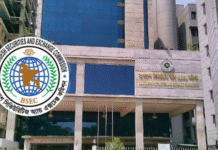Economists at PRI event suggest privatisation of state-owned banks

A leading think-tank yesterday urged the government to privatise state-owned banks, given the adverse environment of political interventions and weak governance they operate in.
“Over the longer term, the government should also reassess whether it really needs to be in the business of banking services,” Sadiq Ahmed, vice-chairman of Policy Research Institute (PRI), said in the paper titled ‘Banking Sector in Bangladesh: Progress, Challenges and Agenda for Reforms’.
“There is plenty of international evidence that publicly-owned banks do not perform well in an environment of weak governance. The quality of portfolio inevitably gets tainted, owing to political interventions that are inconsistent with sound banking decision.”
Ahmed’s analysis was presented by Zaidi Sattar, chairman of PRI, at the think-tank’s fourth quarterly policy brief, held at PRI’s headquarters in Dhaka.
The first best option is to privatise the state-owned banks, which, unfortunately, would not go down well with the country’s political parties, according to the paper.
Besides, there are other practical problems which include opposition by unions and finding sound buyers who are also untainted by political favours.
It said the second-best approach could be taking away the lending functions of the state-owned banks, which would give rise to a “dual banking system” consisting of state-owned “narrow banks” to gather deposits to invest in treasury bills and conventional private sector banks.
“Importantly, the deposits mobilised [by the state-owned banks] then will be safe and not exposed to risks of the type presented by the recent Sonali Bank scam.”
In his paper, Ahmed wrote: “The government must understand it faces a very tight fiscal situation owing to the burden of energy subsidies and it cannot absorb yet another fiscal shock emerging from an overload of infected portfolio in public banks.”
Mashiur Rahman, economic adviser to the prime minister, however, opposed the idea, on grounds that there is a large demographic which the private banks do not cater to — yet.
“If you want to take banking services to the rural areas, it will be the public banks that would do it. Private banks are not interested as there aren’t much profits to be had there.”
He added that because of the wide reach of the state-owned banks the government was able to take many of its social safety net schemes to the rural masses in the last couple of years.
About the Hall-Mark scam, Rahman said these loans were sanctioned neither by the board nor the top management. These were normal trade loans, which nobody followed through. “So, it is a management failure.”
Rahman said by and large, private and foreign banks provide trade financing and public banks investment financing.
“Given that the capital market is not working in the way that it should, you have to have the public banks to provide financing for industries and investment.”
Prof Rehman Sobhan, chairman of Centre for Policy Dialogue, said public banks have emerged out of a market failure of private banks; as a result, term-financing has become one of the objectives of the state-run banks.
“Unless private banks lend long-term loans, it will continue to un-address the problems. The gap will be filled by the state commercial banks,” he said.
Sobhan said linking up millions of people with the real economy would be a challenging task.
“How the banks are managed is a fiduciary responsibility of the government, and it has to be accountable to its citizens.”
Ahmed’s paper also said the public banks’ large non-performing loans (NPLs) pose a major fiscal risk.
“Owing to the lack of autonomy, BB often cannot withstand political pressure, which compromises prudential management.”
In response, Hassan Zaman, chief economist of BB, said: “While the central bank enjoys full autonomy in monetary and exchange rate policy, there is greater scope for augmenting BB’s power in governance and management of state-owned banks.”
Zaman added that the NPLs at public banks went up by 4 percentage points to 10 percent in 2012 due to a new methodology and worsening asset quality.
The Sonali Bank board and managing director both denied having any knowledge of these transactions, said the paper.
“If this is really true, it raises huge concern about the lack of internal controls,” it said, while calling for a full review from the BB.
The BB chief economist, however, said the lack of real-time information on key areas led to the Hall-Mark scam.
“Now we have real time information as we have introduced automation — we will be able to oversee the banks in a stronger way.”
If the Hall-Mark Group, which swindled over Tk 2,600 crore out of Sonali Bank, escapes lightly, the paper noted that the associated moral hazard issue can have a crippling effect on the banking sector.
“This will provide adverse incentives to a host of potential predators to feed on the public banks,” said Ahmed.
Osman Faruq, a former minister, said it has to be seen whether the state-run banks are still serving the purpose they were set up for. “If they do not, we will have to get rid of them.”
The BNP leader, too, said that the autonomy of the central bank has to be strengthened further.
Salehuddin Ahmed, former governor of BB, said implementation of the regulations is the key.
“The Hall-Mark scam is a classic example of the failure of weak governance and proper management. There are cracks on the wall.”
While all attention has been on public banks following the series of scams, the former BB governor said the private banks should also be watched over with equal attention.
Had the various departments of BB worked in a more coordinated manner, the Hall-Mark scam could have been detected much earlier, he said.
Mustafa K Mujeri, director general of Bangladesh Institute of Development Studies, said there is a lack of ethics within the banking system, which could lead to many problems in the economy.
M Syeduzzaman, a former finance minister, said there is a need for greater supervision on private banks.
Siddiqur Rahman, a former finance secretary, said the Hall-Mark scam is not a banking failure but a clear-cut fraud.
Ahsan H Mansur, executive director of PRI, also spoke.
Source: The Daily Star









